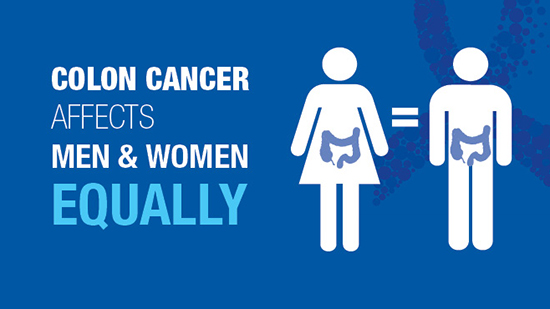Recent Posts
Benefits of sedation-free colonoscopy

Few people look forward to having a screening colonoscopy. Some people even put off having the procedure done because they hear horror stories that are unfounded. Millions of people each year have a colonoscopy and do well, even without sedation.
A colonoscopy is the gold standard for colon cancer screening. During the procedure, a doctor can view your entire colon and rectum, and remove potentially premalignant growths called polyps. Major medical societies recommend screening for colorectal cancer beginning between the ages of 45 to 50.
For most patients, a sedative is given in intravenous form to help relax and minimize any discomfort during the procedure. But did you know that using a sedative is optional? In many countries, sedation-free colonoscopies are the norm. Patients are alert and engaged during the procedure.
Here are the most common questions that I answer when discussing a sedation-free option with patients:
What are the benefits of a sedation-free colonoscopy?
Saving time is the greatest benefit of a sedation-free colonoscopy. If you are sedated for your colonoscopy, you will have restrictions after the procedure until the next day, such as not being able to drive or return to work. You will require a ride home after your procedure, which also may cause your driver to take time off from work. After a sedation-free colonoscopy, you can resume normal activities right away — you can drive, run errands and generally get on with your day.
The second benefit is increased safety. Overall, the sedatives used for colonoscopies are very safe, but there is a small risk of side effects, such as drops in blood pressure, breathing problems, vomiting and prolonged sedation. These are avoided by having a sedation-free colonoscopy.
The third benefit is lower cost. Sedation adds to the procedure's expense. This may be helpful for patients paying out of pocket due to a high-deductible health plan or lack of health insurance.
Is a sedation-free colonoscopy painful or uncomfortable?
Most patients report little or no discomfort during the procedure. You can request sedation during the procedure if you change your mind and feel you need it, although it has been my experience that this seldom occurs.
Selecting a physician who is experienced and comfortable with sedation-free colonoscopies also is important for minimizing any discomfort. When performing a colonoscopy without sedation, I often employ a technique where I infuse water into the colon as the colonoscope is advanced to make the procedure more tolerable for patients.
Who can pick a sedation-free colonoscopy?
Men may do better than women with sedation-free colonoscopies, due to anatomical differences, but, in general, both usually do well without sedation. A previous hysterectomy and a history of other pelvic or abdominal surgeries may result in scar tissue that can make a sedation-free colonoscopy more difficult for some women. Sedation-free colonoscopies also are easier, in general, in people who are a little overweight compared to those who are very thin. Finally, a sedation-free colonoscopy may not be appropriate if you have a history of anxiety, have had a bad experience with a previous colonoscopy or have a low tolerance for discomfort.
Can polyps be removed during a sedation-free colonoscopy?
Yes. In the vast majority of cases, a physician can remove polyps during a sedation-free colonoscopy. The removal of a polyp is not perceived by the patient because the colon lining does not have nerve endings such as those found on the skin.
What do other patients say about the procedure?
Almost universally, my patients have been very satisfied with the experience and choose it again next time they are due for a colonoscopy. They tell me they will recommend it to others as well.
Some people decline having a colonoscopy because they are afraid of the procedure. Yet, we have many patients who have it completed with no sedatives and are satisfied with the experience. There is no reason to be afraid of a colonoscopy.
Learn more about what to expect before and during a colonoscopy and five things you can do to keep your colon healthy.
Jaime Zighelboim, M.D., is a gastroenterologist in Eau Claire, Wisconsin.





